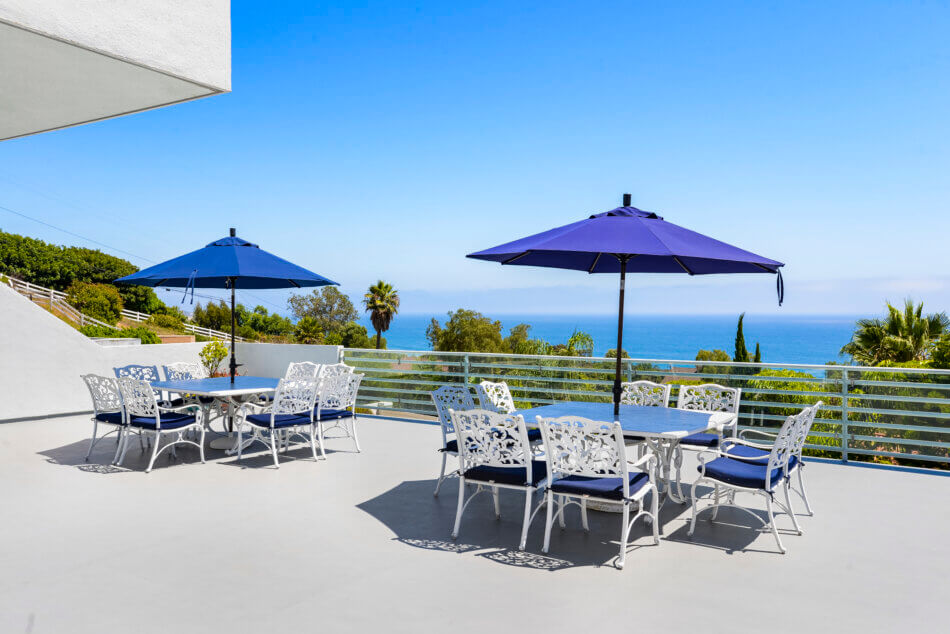You’re not alone in seeking a supportive setting where you can focus on healing. Residential mental health treatment for adults offers a structured, clinically supervised environment designed to address conditions like depression, anxiety, bipolar disorder, trauma, and more. By living onsite around the clock, you benefit from continuous care, a consistent routine, and immediate access to professionals who understand your unique journey. As a result, you can build stability, learn healthy coping strategies, and rediscover hope.
Whether you’re exploring options that accept insurance or weighing different program styles, this guide will help you understand what to expect from a full-time residential setting. You’ll learn about evidence-based therapies, holistic approaches, insurance coverage essentials, and long-term support—all tailored to empower you on the path to lasting recovery.
Explore residential care benefits
Residential programs create a safe, homelike atmosphere where you can concentrate fully on your mental health without the distractions of daily life. Key advantages include:
Structured 24-hour support
- You follow a predictable daily schedule, with set times for therapy, meals, groups, and free time.
- Staff members are onsite around the clock to ensure safety, address crises, and support medication management.
- A consistent routine can reduce anxiety and foster healthier sleep, eating, and self-care habits.
This level of continuous oversight is the hallmark of 24-hour mental health treatment for adults. In Colorado, for example, residential services provide twenty-four-hour structured oversight without requiring hospitalization (Colorado Department of Health Care Policy and Financing).
Psychiatric oversight and safety
- Board-certified psychiatrists and psychiatric nurses supervise medication adjustments and monitor side effects.
- Ongoing assessments help your care team respond quickly to changes in mood or behavior.
- Crisis intervention procedures ensure you have immediate access to help if you or your peers face an emergency.
These safeguards reflect the high standards set by state licensing bodies, such as Oregon’s Licensing and Certification Unit, which inspects residential mental health programs every two years to maintain compliance with administrative rules (Oregon.gov).
Peer connections and community
- Living and healing alongside others who share similar challenges reduces isolation.
- Group activities and peer-led discussions foster mutual support and accountability.
- A sense of belonging helps you feel understood and motivates you to stay engaged in treatment.
By joining a psychiatric residential care for adults community, you’ll find camaraderie that extends beyond individual therapy sessions, laying the groundwork for lifelong friendships and recovery networks.
Discover evidence-based therapies
A cornerstone of effective residential treatment is the use of therapies backed by rigorous research. You’ll engage in multiple modalities that target the root causes of emotional distress and build practical skills.
Cognitive behavioral therapy
Cognitive behavioral therapy (CBT) helps you identify and challenge negative thought patterns and replace them with healthier alternatives. In a residential setting you can:
- Attend daily individual CBT sessions to work through personal triggers.
- Practice new coping strategies in real time, with staff guidance.
- Receive feedback on homework assignments and daily journaling.
CBT’s proven ability to reduce symptoms of depression and anxiety makes it a staple of many adult residential therapy program for long-term recovery.
Dialectical behavior therapy
Dialectical behavior therapy (DBT) blends acceptance and change strategies to manage intense emotions and impulsive behaviors. Your residential DBT experience may include:
- Skills groups focused on mindfulness, distress tolerance, emotional regulation, and interpersonal effectiveness.
- Individual DBT coaching to apply skills during challenging moments.
- Diary cards to track daily emotions and skill usage.
If you struggle with self-harm urges or suicidal thoughts, a residential dbt program for adults can be a lifesaving option.
Specialized treatment groups
Beyond CBT and DBT, you may join group sessions tailored to specific diagnoses or life experiences:
- Trauma-focused groups, such as those in residential therapy for trauma and ptsd
- Mood disorder support circles, including inpatient program for adults with mood disorders
- Co-occurring substance use and mental health workshops, like residential program for adults with co-occurring disorders
These focused groups ensure that your treatment is as relevant and effective as possible, addressing the full range of your needs.
Experience holistic healing options
While evidence-based therapies target specific symptoms, holistic approaches nurture your whole person—mind, body, and spirit.
Art, music, and horticulture therapy
- Expressing yourself through painting, drawing, or sculpting can unlock emotions that words cannot capture.
- Music therapy uses rhythm and melody to enhance mood, reduce stress, and improve social skills.
- Horticulture therapy lets you connect with nature by tending gardens, planting seeds, and witnessing growth—metaphors for your own healing journey.
Programs like those at Skyland Trail integrate art, music, and horticulture therapies into daily life to foster creativity and emotional resilience (Skyland Trail).
Mindfulness and yoga sessions
- Guided mindfulness practices teach you to observe thoughts and feelings without judgment.
- Yoga classes combine gentle movement, breath work, and meditation to reduce tension and improve body awareness.
- Regular practice can lower stress hormones, enhance focus, and promote self-compassion.
Many centers offer a dedicated residential holistic therapy for adults track that weaves mindfulness and yoga into your personalized plan.
Nutrition and fitness support
- Dietitians help you develop balanced meal plans that stabilize mood and energy levels.
- Group exercise classes—such as tai chi, circuit training, or nature hikes—promote cardiovascular health and endorphin release.
- Wellness education covers sleep hygiene, stress management, and healthy habits you can maintain after discharge.
Holistic care ensures you leave with not only new coping skills but also practical lifestyle strategies to support long-term wellness.
Navigate insurance coverage
Affording residential care can feel overwhelming, but health plans and financial assistance options can make treatment accessible.
Essential health benefits under ACA
Under the Affordable Care Act, mental health and substance use services are considered essential health benefits. Your plan must cover:
- Inpatient hospital care and residential treatment
- Outpatient therapy and psychiatric services
- Prescription medications
These protections mean your residential stay will likely be billed as inpatient or high-level outpatient care, reducing your out-of-pocket burden (HealthCare.gov).
Parity protections and out-of-pocket costs
Parity laws require that coverage for mental health services be no more restrictive than coverage for other medical services. As a result:
- Copays and deductibles for residential programs cannot exceed those for general medical care.
- Lifetime or annual limits on mental health benefits are prohibited.
- You can appeal coverage denials through your insurer’s process.
When you choose a mental health residential facility that accepts insurance, your care team can help you navigate authorizations and appeals.
Low-cost and sliding fee options
If you’re underinsured or uninsured, explore financial assistance:
- Many providers offer sliding-fee scales based on income
- Grants, scholarships, or charity care programs may offset costs
- Payment plans can spread expenses over time
SAMHSA maintains a directory of free or low-cost treatment programs to help you find support that fits your budget (SAMHSA).
Plan your admission process
Understanding what to expect at intake can ease your transition into residential care.
Eligibility and intake requirements
Before admission you’ll typically complete:
- A clinical assessment to confirm the need for 24-hour care
- Medical screening to address any physical health concerns
- Insurance verification or financial interview
In Oregon, for instance, programs must follow state administrative rules and you can contact your local mental health program for guidance (Oregon.gov).
Assessments and personalized planning
Within 24 to 72 hours of arrival you’ll undergo:
- Psychological evaluations to identify diagnoses and co-occurring disorders
- Nutritional and fitness assessments
- Goal-setting sessions to craft your individualized treatment plan
This personalized blueprint guides your daily schedule, therapies, and recovery milestones.
Transitioning from hospital or outpatient
If you’re moving from inpatient hospitalization or an outpatient program, your care team will coordinate:
- Medical and psychological summaries transferred from your previous provider
- Medication reconciliation to ensure continuity of care
- A step-down plan, such as a residential program for adults transitioning from hospitalization, to ease your adjustment.
Clear communication between providers helps you maintain momentum as you enter full-time residential treatment.
Choose the right program
Not all residential settings are the same. Consider these factors when comparing options.
Facility types and settings
Residential programs range from:
- Hospital-based centers with acute psychiatric units
- Nonhospital group homes in urban or suburban neighborhoods
- Rural retreats or farm-based environments that emphasize therapeutic work and nature
The American Residential Treatment Association outlines four distinct care styles and can help you find a setting that feels like home (ARTA).
Treatment length and phases
Programs vary in duration, often including:
- Short-term stays (up to 30 days) for crisis stabilization
- Mid-term placements (6 to 8 weeks) focusing on skill-building
- Long-term care (3 to 12 months) for complex or chronic conditions
At Skyland Trail, adults average a 6- to 8-week residential stay followed by 4 to 8 weeks of day treatment and intensive outpatient care, totaling roughly 12 to 16 weeks (Skyland Trail).
Location, environment, and culture
- Proximity to family and support networks can boost your engagement in aftercare.
- Amenities—such as private rooms, gardens, and recreational facilities—enhance your comfort and well-being.
- Program philosophies vary, from faith-based approaches to secular or trauma-informed models.
Tour potential sites, meet staff and residents, and ask about daily life to ensure the environment aligns with your values and needs.
Sustain long-term stabilization
Recovery extends beyond discharge. A solid aftercare plan helps you maintain gains and prevent relapse.
Aftercare and outpatient services
- Step-down programs, such as intensive outpatient or partial hospitalization, bridge residential care and community life.
- Regular individual and group therapy sessions reinforce coping skills.
- Medication management visits keep your treatment plan on track.
Explore options like the inpatient program for adults with mood disorders or ongoing day treatment to maintain structure.
Peer support and ongoing groups
- Peer-led 12-step or recovery support groups provide accountability and shared experience.
- Alumni programs connect you with others who’ve completed residential treatment.
- Community workshops and wellness seminars keep you engaged in personal growth.
Building these connections helps you stay motivated and reminds you that you’re part of a recovery community.
Strategies to prevent relapse
- Develop a personalized crisis plan that outlines warning signs and coping actions.
- Practice self-care routines, including sleep hygiene, balanced nutrition, and exercise.
- Schedule regular check-ins with trusted friends, family, or sponsors.
Maintaining a proactive mindset reduces the likelihood of setbacks and strengthens your resilience.
Take the next step
Choosing residential mental health treatment for adults can be a transformative decision. If you’re ready to explore a supportive, clinically supervised environment that accepts insurance and offers comprehensive care, reach out today. Contact our admissions team to learn more about our adult residential treatment program and begin your journey toward lasting stability and well-being.










